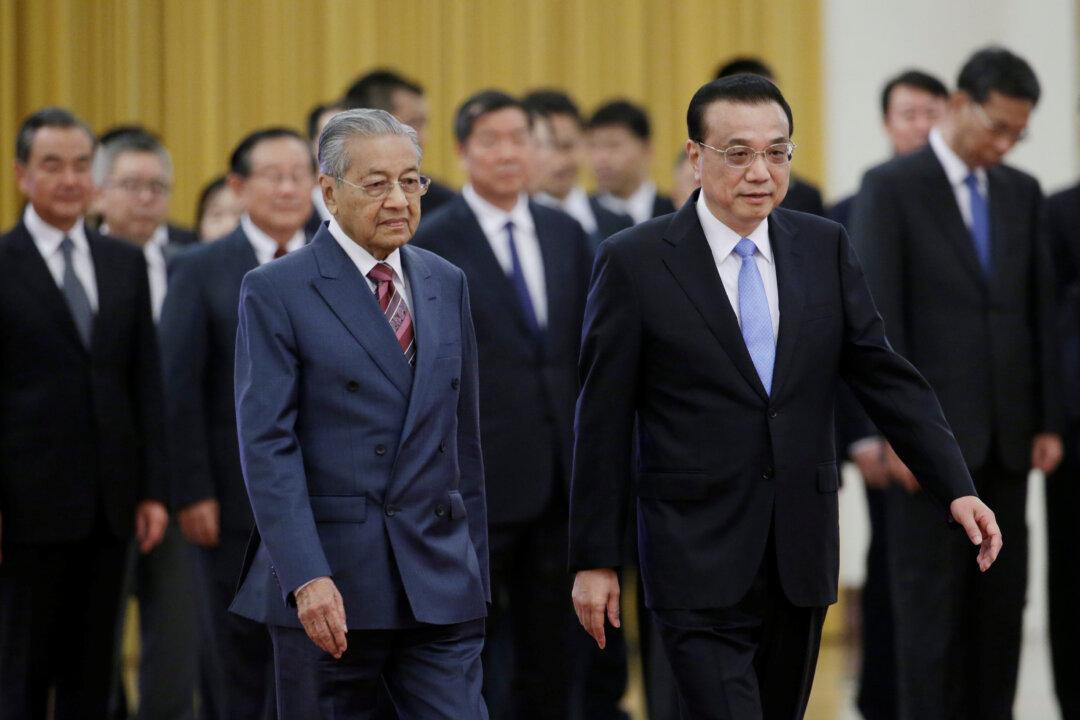Malaysia’s Prime Minister Mahathir Mohamad announced the cancellation of two major Chinese state-backed infrastructure projects, valued at a total of about $23 billion, during a press conference on the final day of an official visit to China.
Mahathir canceled the East Coast Rail Link (ECRL) and the Trans-Sabah Gas Pipeline (TSGP) projects, which were part of China’s “One Belt, One Road” (OBOR) initiative, saying his country’s top priority is now to minimize its debt and loans.





